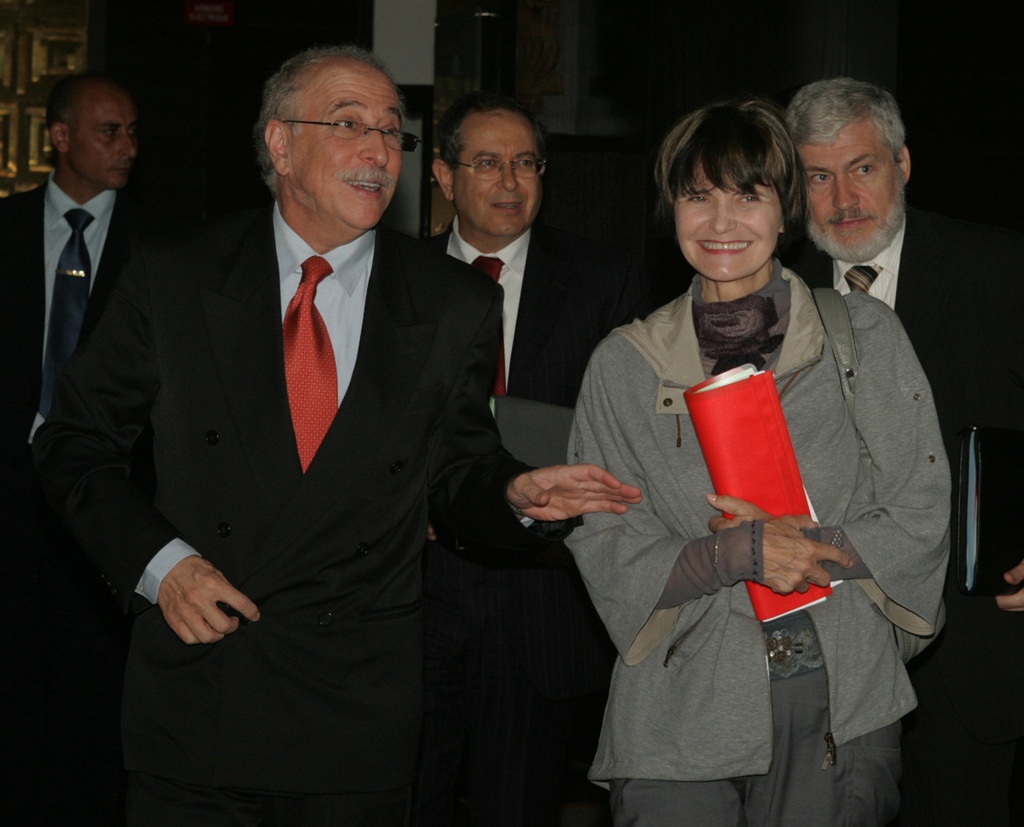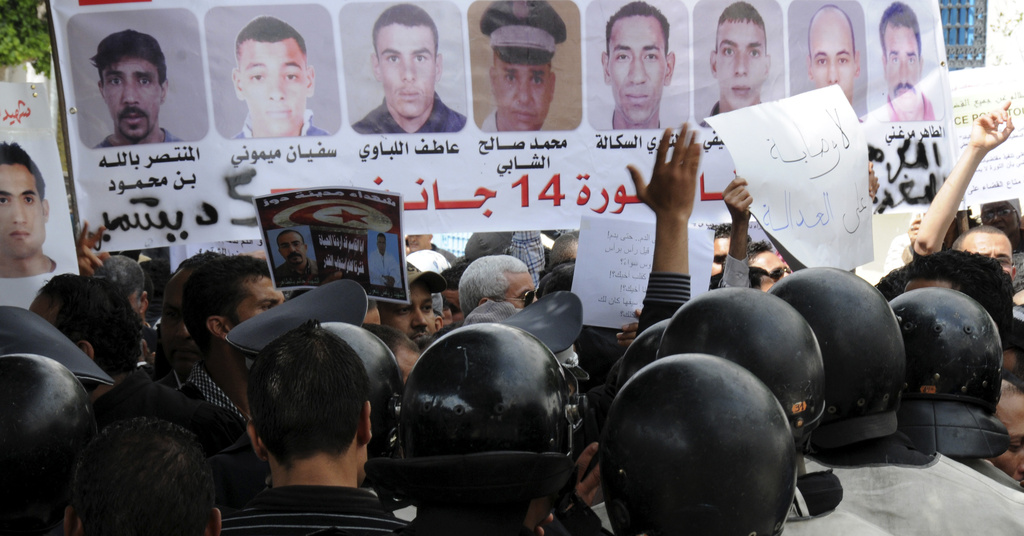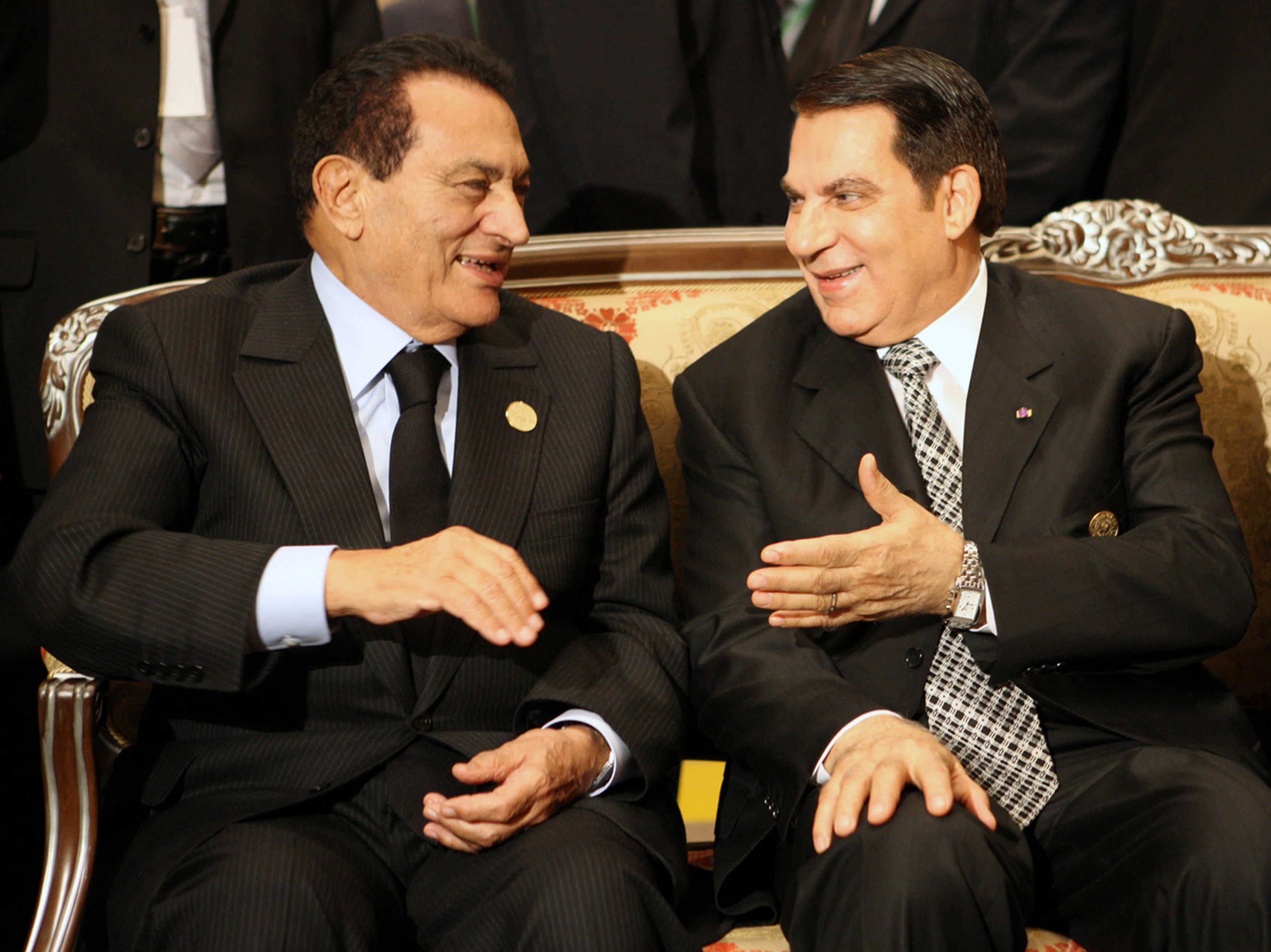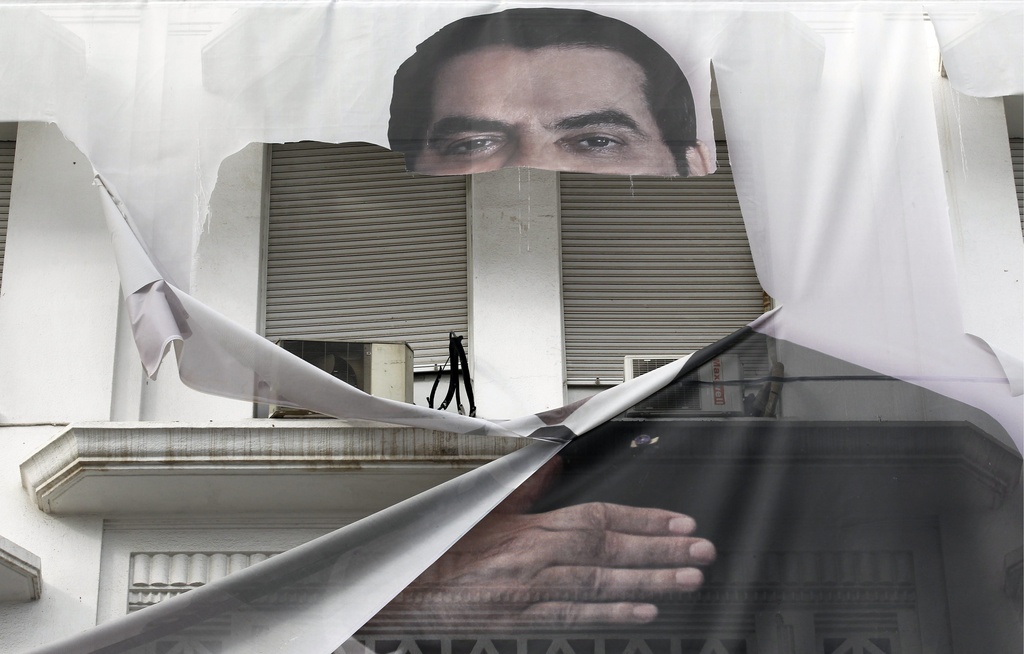Time needed before Ben-Ali assets returned

Swiss Foreign Minister Micheline Calmy-Rey says returning frozen assets of the country’s deposed dictator to the Tunisian state will take time.
Calmy-Rey was speaking on Monday at a news conference on the sidelines of a meeting in Tunis of Swiss ambassadors in the region.
“How long will it take before the money of the Ben Ali clan is given back to the Tunisian state?” a local journalist asked Calmy-Rey, who replied that it would depend on how smoothly the process moved forward. “We will do everything according to the rule of law.”
Switzerland has frozen SFr60 million ($69 million) deposited in Switzerland by former dictator Zine el-Abidine Ben Ali and his clan. The Tunisian authorities have been asked to help in determining whether the money was gotten illegally. Calmy-Rey added that a judge would make the final ruling.
“It’s not as easy as one thinks. It’s not simply a question of bank accounts under the name of Mr or Mrs Ben Ali. Complex financial transactions are involved,” the foreign minister explained.
She said the fastest frozen assets have ever been returned by the Swiss government was four years.
The SFr60 million is a lot less than many people had expected, Calmy-Rey said, especially compared to frozen assets belonging to Libya’s Gaddafi clan (SFr360 million) and Egypt’s Mubarak family (SFr400 million).
Money laundering laws
She explained the reason for this could be because of Switzerland’s “tough money laundering laws “ and the fact that the Swiss government did not have good relations with the Ben Ali family.
The uneasy ties were due in part, she said, to a demand made in 2005 by the then Swiss president, Samuel Schmid, for more freedom of speech in Tunisia, which angered the Tunisian government at the time.
Switzerland’s position on the wave of immigrants arriving in Europe from North Africa was also discussed at the news conference.
“These are not proper refugees but people looking for jobs,” this year’s Swiss president said, stressing that as a member of the Schengen area on common border patrols Switzerland must adhere to the articles of the treaty.
Switzerland had provided aid to Africans who have reached Europe, she added, and granted financial support to international humanitarian organisations. But she stressed that Switzerland would hold true to its principle of giving support to people in their home countries to give them reasons to stay.
Democracy
The news conference was told that the Swiss government wants to open an office in Tunis, in cooperation with the Tunisian authorities, to support the transition to a democratic state.
Swiss experts would provide advice on the creation of democratic structures, the strengthening of the economy and how to prevent corruption.
At the moment, Swiss firms employ some 14,000 people in Tunisia. Switzerland’s economics minister, Johann Schneider-Ammann, is planning a visit to Tunisia in the second half of this year to discuss improving trade relations.
Calmy-Rey said she was asked on Monday by Tunisian government representatives to push for the return of Swiss tourists to Tunisia. Before the overthrow of Ben Ali’s regime in January, around 100,000 Swiss travelled to Tunisia annually.
The foreign minister refused to provide any further details on Switzerland’s support for the transitional governments of North Africa. “We have limited means and we are discussing at the ambassadors’ conference on what the focus of our strategy should be.”
She said elections in these states would show how the new structures in Tunisia and Egypt would deal with Islamic movements. But Calmy-Rey repeated that it has not been Islamists leading the street protests across the Arab world but people calling for “co-determination and democracy”.
Switzerland froze assets linked to Tunisia’s ousted president, Zine el-Abidine Ben Ali, and about 40 people in his entourage on January 19, less than a week after he was toppled from power.
Swiss officials estimate Tunisian government officials placed some $620 million (SFr 555 million) in Swiss bank accounts.
In February, Switzerland froze assets belonging to Hosni Mubarak of Egypt and his associates. Mubarak’s worth remains a mystery, but claims that he and his sons amassed up to $70 billion helped drive protests that brought him down.
In both cases, the money is frozen for three years. If the illicit origin of the assets is proven within that time, Swiss authorities and Egyptian and/or Tunisian authorities will have to then define a pattern for restitution.
If it cannot be demonstrated within the framework of a criminal law procedure or a mutual legal assistance proceeding, the assets will have to be unfrozen.
If Tunisia or Egypt were to be incapable of successfully undertaking criminal proceedings and if the mutual legal assistance procedure with Switzerland were unable to move forward, the Federal Council could decide to apply the new Act on Restitution of Illicit Assets, which came into force in February.
A Swiss-based International League for the Defence of Arab Populations was created in March by Swiss lawyer Ridha Ajmi to coordinate the Tunisian, Egyptian and Libyan asset recovery requests inside Switzerland. Should other countries make similar requests for assets in the future, it will also take on their cases. Consisting of lawyers, journalists and artists, it will offer advice and support populations in transition.
(Translated from German by Dale Bechtel)

In compliance with the JTI standards
More: SWI swissinfo.ch certified by the Journalism Trust Initiative




You can find an overview of ongoing debates with our journalists here. Please join us!
If you want to start a conversation about a topic raised in this article or want to report factual errors, email us at english@swissinfo.ch.